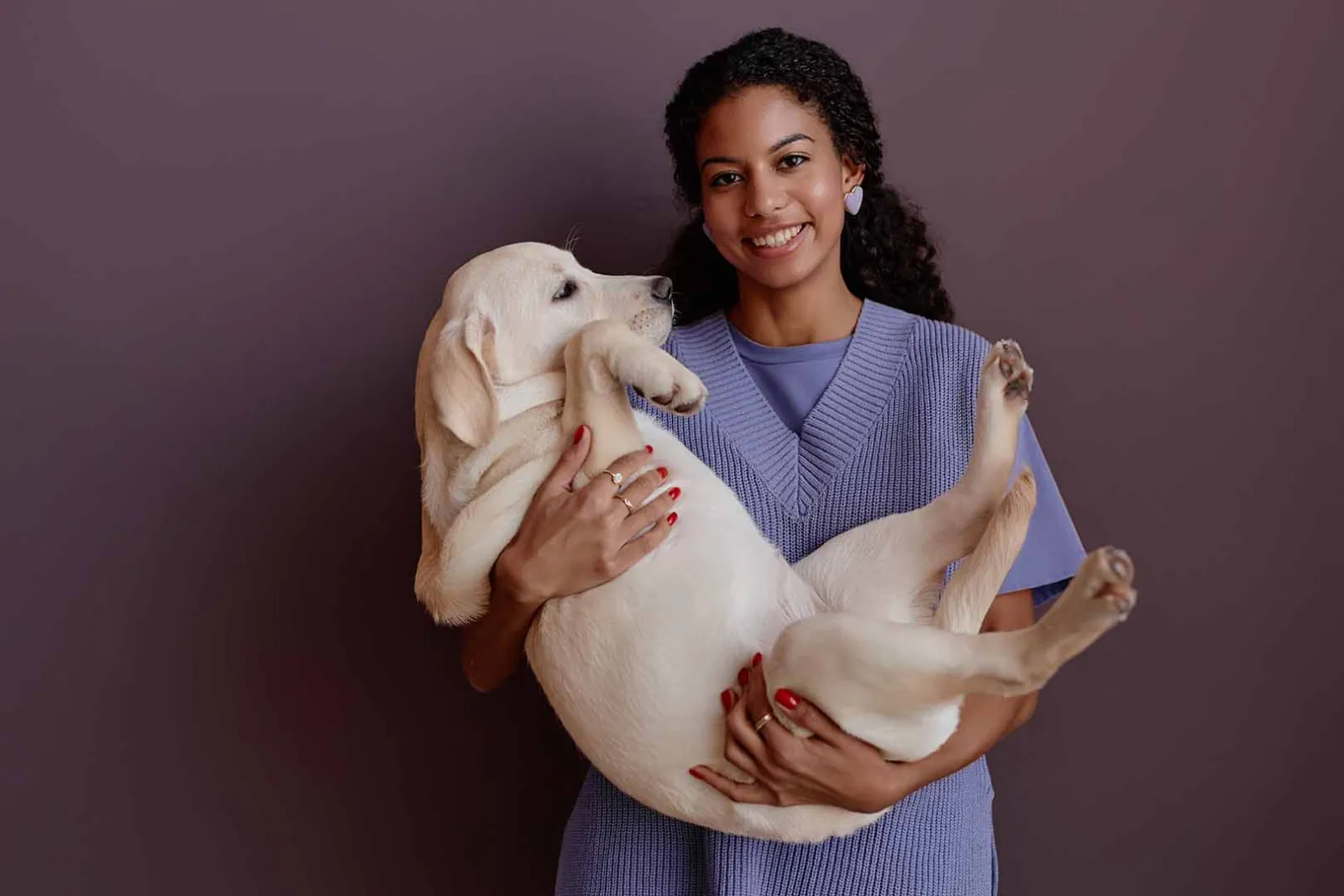Why Does My Dog Pee When I Pick Him Up?

- Understand the difference between excitement urination in dogs and submissive urination.
- Discover why this physical response occurs and what triggers it.
- Learn how dog training can help reduce unwanted urination.
If your dog pees when you pick him up, you may be dealing with excitement urination in dogs or submissive urination. While this behavior can be frustrating, it's a natural physical response that many puppies and even some adult dogs experience. Understanding why this happens is the first step in managing and preventing it.
In this blog, we'll explore the reasons behind excitement urination in dogs, how submissive urination differs, and how dog training can help correct this issue.
What Is Excitement Urination in Dogs?
Excitement urination in dogs occurs when a dog involuntarily urinates due to heightened emotions. This often happens during moments of joy, playtime, or when greeting their owner. Puppies are the most common culprits, but some dogs carry this habit into adulthood.
This type of urination is not a sign of poor house training—it's a natural physical response that occurs because a dog's bladder control isn't fully developed. Over time, as their muscles strengthen and their emotional regulation improves, many dogs grow out of it.
Common Triggers:
- Greeting their owner after time apart
- Excitement from play or affection
- Being picked up unexpectedly
- Visitors arriving at the home
If your dog pees when you lift them during a high-energy moment, they're likely experiencing excitement urination in dogs.
Understanding Submissive Urination
Unlike excitement-based accidents, submissive urination is a response to fear or anxiety. Dogs use this as a form of appeasement, signaling to others that they are not a threat. This behavior is most common in puppies, rescued dogs, and naturally timid breeds.
Dogs displaying submissive urination may:
- Cower or lower their body
- Tuck their tail between their legs
- Avoid direct eye contact
- Roll onto their back
Common Triggers:
- Being scolded or reprimanded
- Sudden or loud movements
- Meeting new people or animals
- Being handled or picked up too quickly
Recognizing whether your dog is experiencing excitement urination in dogs or submissive urination is crucial for finding the right approach to correct it.
Why Does This Physical Response Happen?
Both excitement urination in dogs and submissive urination stem from a dog's nervous system and emotional regulation. Puppies and young dogs have less control over their bladder, making them more likely to experience these involuntary accidents.
Additionally, some dogs may have naturally sensitive temperaments, making them prone to submissive urination even into adulthood. Environmental factors, past trauma, and inconsistent training can also contribute to this physical response.
How Dog Training Can Help
Proper dog training can significantly reduce and even eliminate unwanted behaviors. Whether your dog struggles with excitement urination in dogs or submissive urination, these techniques can help:
- Stay Calm During Greetings Avoid overly enthusiastic greetings when arriving home. Keep interactions low-key to prevent overstimulation that may lead to urination.
- Gradually Desensitize Your Dog to Being Picked Up If your dog pees when lifted, try slowly introducing the action. Offer treats and praise when picking them up to create a positive association.
- Encourage Confidence Building For dogs struggling with submissive urination, focus on building their confidence. Reward them for standing tall and engaging in play, and avoid sudden, intimidating movements.
- Take Frequent Potty Breaks Giving your dog more opportunities to relieve themselves can reduce the chances of accidents. Schedule regular potty breaks, especially before high-energy activities.
- Use Positive Reinforcement Punishing a dog for urination accidents can worsen submissive urination. Instead, use positive reinforcement when they successfully hold their bladder during excitement or stressful situations.
When to Seek Professional Help
If your dog's urination issues persist despite training, consulting a veterinarian or professional trainer may be necessary. In some cases, underlying medical conditions like urinary tract infections (UTIs) or bladder dysfunction could be contributing to the problem.
A vet can help determine if there's a medical cause, while a professional dog trainer can offer specialized guidance to correct behavior-related issues.
Both excitement urination in dogs and submissive urination are common but manageable behaviors. By understanding the root cause of this physical response and applying effective dog training techniques, you can help your pup gain better bladder control and confidence.
If you're concerned about your dog's urination habits, Forever Vets is here to provide guidance and support for all your pet's health and behavioral needs. Contact us today!


